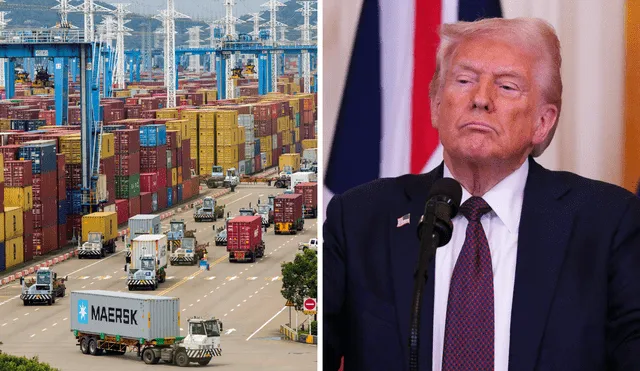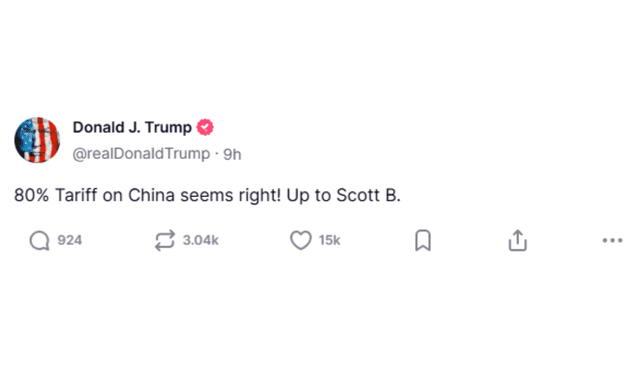Trump tariffs: Trump proposes 80% tariff on Chinese imports ahead of key trade talks in Switzerland
The U.S. president, Donald Trump, suggests cutting tariffs from 145% to 80% and calls for China to open its markets, as high-level negotiations between the two countries begin in Geneva.

U.S. president Donald Trump has proposed a significant reduction in tariffs on Chinese imports, lowering them from 145% to 80%. The announcement was made just hours before a crucial round of trade negotiations between the United States and China, set to take place in Geneva, Switzerland. Trump shared the proposal via his social media platform, Truth Social, stating that a tariff of 80% "seems right," and indicating that the final decision rests with Treasury Secretary Scott Bessent.
The World Trade Organization (WTO) responded to the announcement positively, describing the move as a constructive step toward easing global trade tensions. The upcoming talks in Geneva are expected to address long-standing economic disputes between the two largest economies in the world, with hopes that the meeting will help reduce international market volatility triggered by the ongoing trade conflict.
Tariff reductions and market access requests
President Trump’s statement comes amid heightened anticipation surrounding the Geneva trade talks, which will bring together top economic officials from both nations. Since returning to office in January, Trump has adopted a protectionist economic strategy, imposing tariffs of up to 145% on a range of Chinese products. In retaliation, China placed 125% tariffs on American goods, significantly impacting bilateral trade and alarming global investors and institutions.
Trump’s suggestion to reduce tariffs to 80% is seen as a potential first step toward resolving the trade dispute. In addition to the tariff proposal, the president urged China to open its domestic market to U.S. businesses, stating, “Closed markets no longer work! It would be so good for them!” His comments signal a possible shift in tone, aiming to balance protectionist policies with broader access to foreign markets.

Through his Truth Social network, the president said that an 80% tariff "seems about right," a decrease from the current 145%. Photo: Truth Social
High-level Geneva talks underway
The negotiations in Geneva are being led by U.S. Treasury Secretary Scott Bessent and U.S. Trade Representative Jamieson Greer, with Chinese vice premier He Lifeng heading Beijing’s delegation. This marks the most senior-level dialogue between the two governments since Trump’s return to the White House. While a comprehensive agreement is not expected immediately, Bessent emphasized the importance of laying the groundwork for long-term economic cooperation and de-escalation of trade tensions.
Bessent, a critic of the current trade restrictions, has labeled them “unsustainable” for both countries. He has stressed the need for China to revise certain trade practices that the U.S. believes distort competition and harm American workers. The Treasury Secretary confirmed that the agenda will include tariffs, market access, and the broader trade environment, though specific details of the meeting have not yet been disclosed.
WTO welcomes renewed dialogue
The WTO has welcomed the new round of discussions, with Director-General Ngozi Okonjo-Iweala calling the initiative “a positive and constructive step toward de-escalation.” The organization believes that ongoing dialogue between the U.S. and China is crucial for restoring market stability and preventing further global economic fragmentation.
A WTO spokesperson highlighted that continued engagement between the world’s two largest economies is essential for protecting global growth. The agency also cautioned that an extended trade conflict could have widespread effects, potentially slowing international investment and triggering negative economic consequences for countries not directly involved in the dispute.














